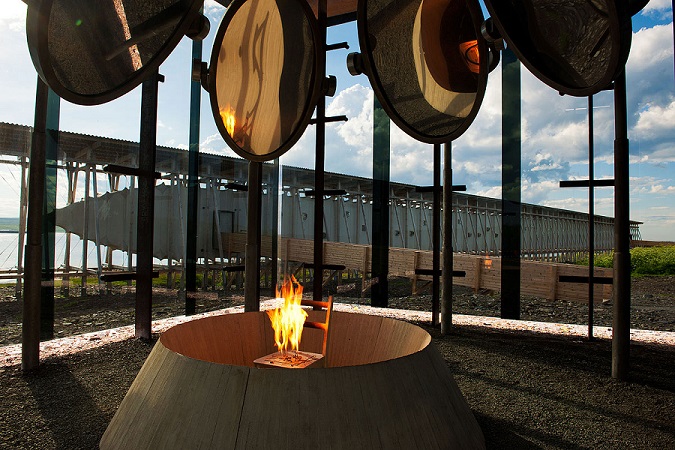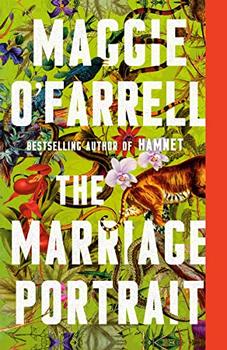Summary | Excerpt | Reviews | Beyond the book | Read-Alikes | Genres & Themes | Author Bio

After the men in an Arctic Norwegian town are wiped out, the women must survive a sinister threat in this "perfectly told" 1600s parable of "a world gone mad" (Adriana Trigiani).
Finnmark, Norway, 1617. Twenty-year-old Maren Magnusdatter stands on the craggy coast, watching the sea break into a sudden and reckless storm. Forty fishermen, including her brother and father, are drowned and left broken on the rocks below. With the menfolk wiped out, the women of the tiny Arctic town of Vardø must fend for themselves.
Three years later, a sinister figure arrives. Absalom Cornet comes from Scotland, where he burned witches in the northern isles. He brings with him his young Norwegian wife, Ursa, who is both heady with her husband's authority and terrified by it. In Vardø, and in Maren, Ursa sees something she has never seen before: independent women. But Absalom sees only a place untouched by God, and flooded with a mighty evil.
As Maren and Ursa are drawn to one another in ways that surprise them both, the island begins to close in on them, with Absalom's iron rule threatening Vardø's very existence.
Inspired by the real events of the Vardø storm and the 1621 witch trials, The Mercies is a story of love, evil, and obsession, set at the edge of civilization.
The horror of witch trials—how they were used as a front to exert control and wipe out so-called "undesirables"—has been explored in fiction many times before. It is to Hargrave's credit that The Mercies feels no less emotionally engaging, factually enlightening, thematically resonant and narratively compelling as a result. She breathes life into the experiences of those too often relegated to mere statistics. If history books define victims of such trials by their deaths alone, this author asks us to remember them for the lives and loves they fought to defend...continued
Full Review
 (630 words)
(630 words)
(Reviewed by Callum McLaughlin).
 For such a small and remote community, Vardø has endured more than its share of tragedy. In 1617, the small fishing town found at the easternmost point of Norway was hit by a violent storm. Its arrival was so sudden and devastating, it all but wiped out the male population, leaving behind a community of shell shocked women and children. Their journey through grief, and their attempt to adjust to a whole new way of life, was made all the more difficult by the threat of witch hunts spreading across Europe at the time. This scenario is evocatively captured in Kiran Millwood Hargrave's novel The Mercies.
For such a small and remote community, Vardø has endured more than its share of tragedy. In 1617, the small fishing town found at the easternmost point of Norway was hit by a violent storm. Its arrival was so sudden and devastating, it all but wiped out the male population, leaving behind a community of shell shocked women and children. Their journey through grief, and their attempt to adjust to a whole new way of life, was made all the more difficult by the threat of witch hunts spreading across Europe at the time. This scenario is evocatively captured in Kiran Millwood Hargrave's novel The Mercies.
Witch trials (which are estimated to have taken anywhere from 16,000 to 50,000 lives in Europe alone) originated in the 15th century, ...

If you liked The Mercies, try these:

The Ballad of Jacquotte Delahaye
by Briony Cameron
Published 2025
This epic, dazzling tale based on true events illuminates a woman of color's rise to power as one of the few purported female pirate captains to sail the Caribbean, and the forbidden love story that will shape the course of history.

by Maggie O'Farrell
Published 2023
The author of Hamnet - New York Times bestseller and National Book Award winner - brings the world of Renaissance Italy to jewel-bright life in this unforgettable portrait of the captivating young duchess Lucrezia de' Medici as she makes her way in a troubled court.